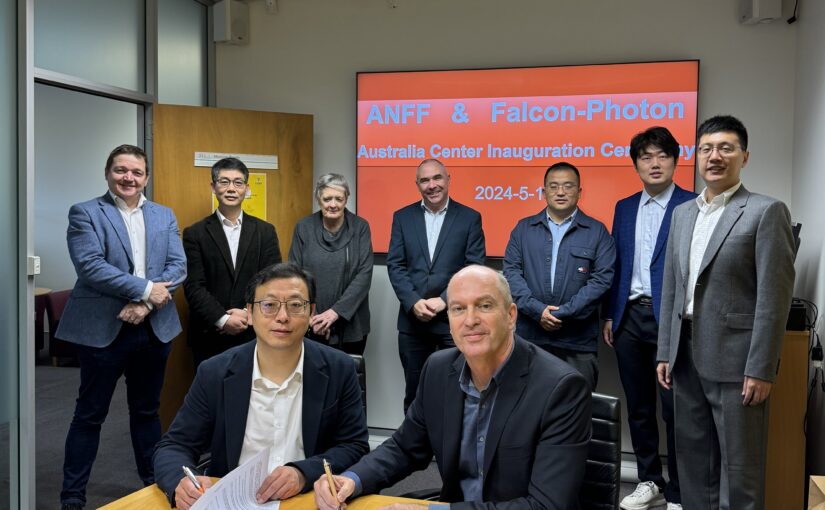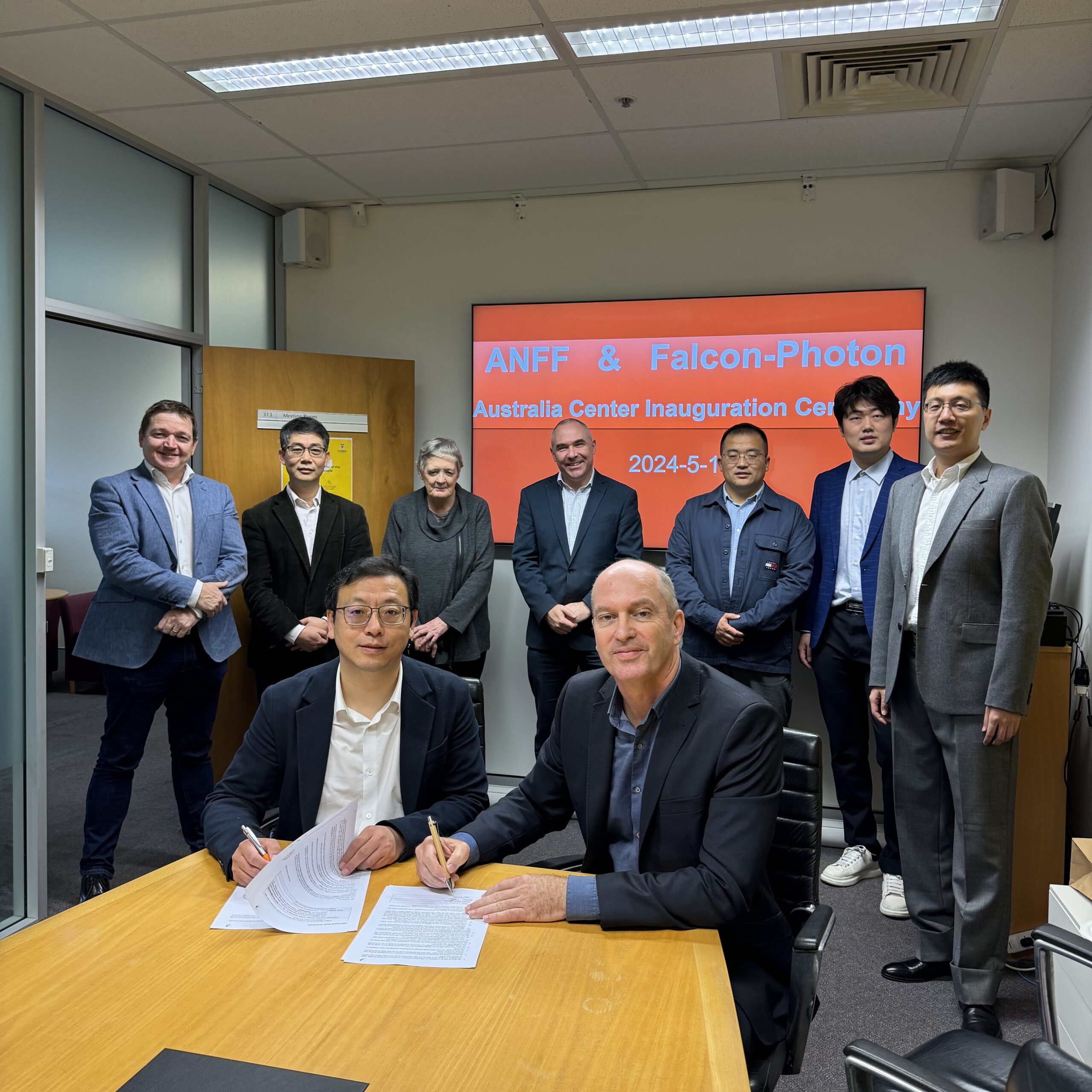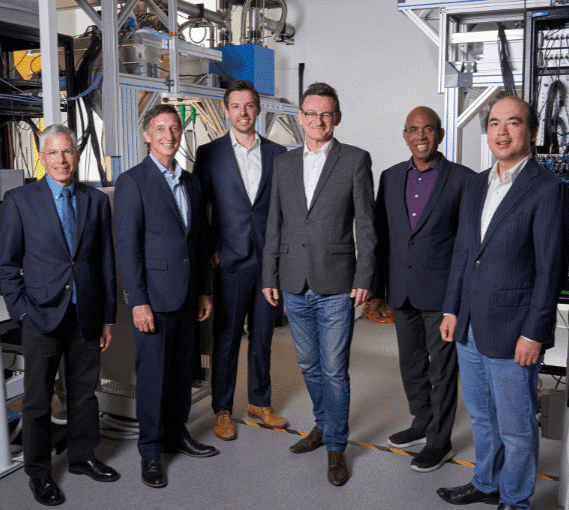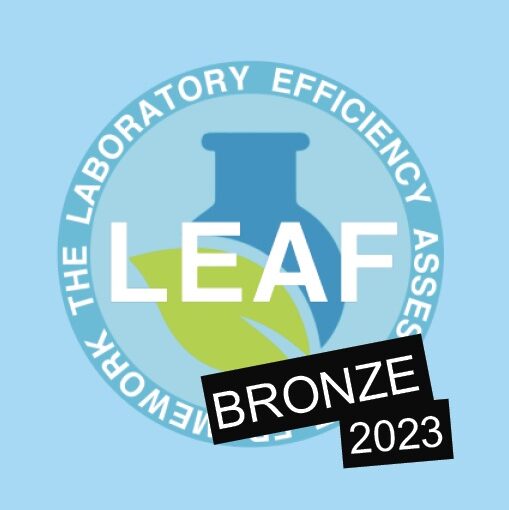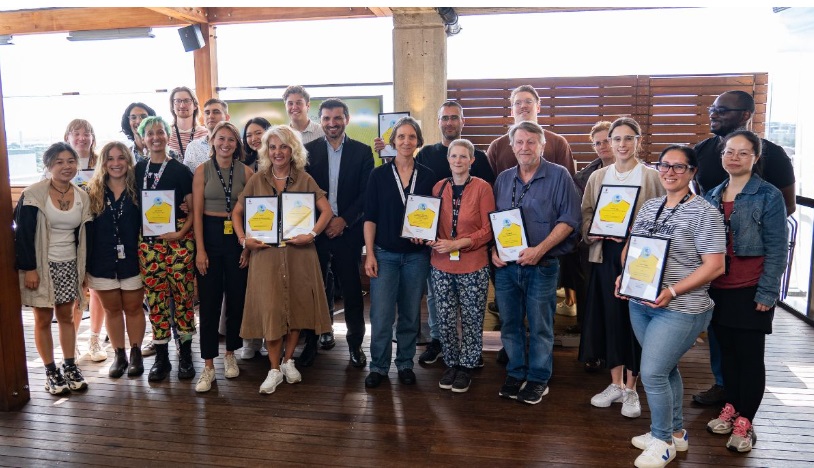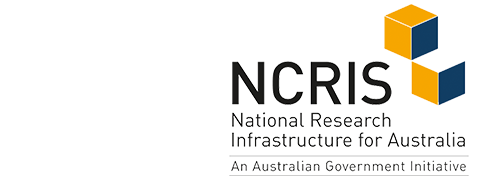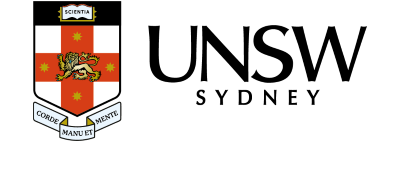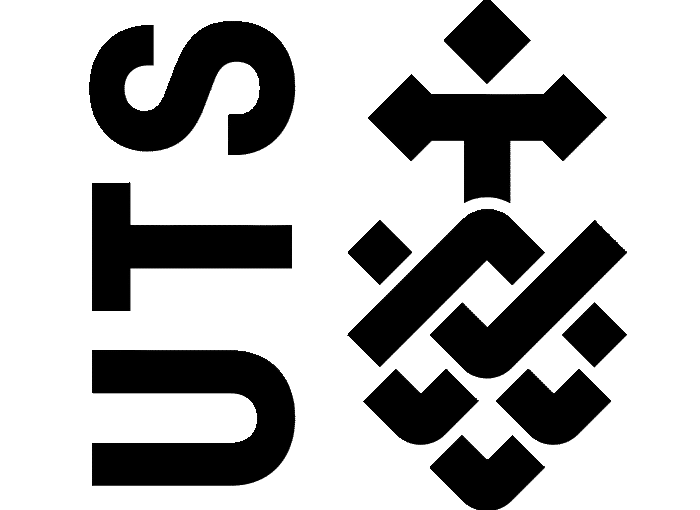ANFF Director, Prof François Ladouceur and Technical Director Dr Matthew Boreland have signed a $1.2 million user agreement with a brand new international partner. Under this two year agreement, Falcon-Photon Co. Ltd., will be using the ANFF foundry services to develop photonics interconnects. Both parties see this agreement as a stepping stone that will yield dividends over the coming years and will cement Sydney position as a world class photonics innovation hotspot.
Dr. Bin Wang (CEO. Falcon-Photon) and Prof François Ladouceur (Director, ANFF NSW) during the signature ceremony. Also present (from left to right) Dr Matthew Boreland (ANFF NSW, Technical Director), Prof Jinhong Yuan (HoS, UNSW), Prof Grainne Moran (PVC Infrastructure, UNSW), Prof Julien Epps (Engineering Dean, UNSW) and three employees of Falcon-Photon: Mr Zhenyu Zhao, Dr Yuan Wei, and Dr Jianfu Wang.

